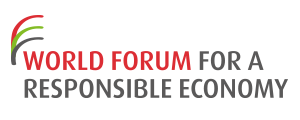Daphna Nissenbaum has cofounded Tipa after her son had asked her “what do plastic bottles become?”. She found she was not able to provide a satisfying answer to this question.
Our society is confronted to huge amounts of plastic waste, which are polluting our soils and waters and affecting biodiversity. A significant part of this plastic waste comes from packaging: plastic used for food and beverage packaging makes up two-thirds of the world’s plastic waste.





 TIPA’s bio-plastic currently comprise standalone and printed coextruded high-transparent cast films, which are sealable and printable and typically used for the packaging of fresh produce, bakery and grain-mill products.TIPA has protected its innovation with a range of a worldwide pattern. Intellectual Property is currently representing the whole of the company’s assets.In addition, its transparent and non-transparent laminate series is offered for a variety of food segment applications such as stand-up pouches, granola bars, potato chips and other snacks, grains and dried foods and vitamins capsules, as well as a range of non-food packaging applications including apparel, bags and pillow packs.Even though the price is 2 to 3 times more than the price of a classic plastic packaging, it should not impact the total price for sophisticated products such as snacks. For such products, the cost of packaging remains low compared to the cost of the final product. Moreover, with the company’s development, economy of scales will reduce drastically the price of the product.
TIPA’s bio-plastic currently comprise standalone and printed coextruded high-transparent cast films, which are sealable and printable and typically used for the packaging of fresh produce, bakery and grain-mill products.TIPA has protected its innovation with a range of a worldwide pattern. Intellectual Property is currently representing the whole of the company’s assets.In addition, its transparent and non-transparent laminate series is offered for a variety of food segment applications such as stand-up pouches, granola bars, potato chips and other snacks, grains and dried foods and vitamins capsules, as well as a range of non-food packaging applications including apparel, bags and pillow packs.Even though the price is 2 to 3 times more than the price of a classic plastic packaging, it should not impact the total price for sophisticated products such as snacks. For such products, the cost of packaging remains low compared to the cost of the final product. Moreover, with the company’s development, economy of scales will reduce drastically the price of the product.